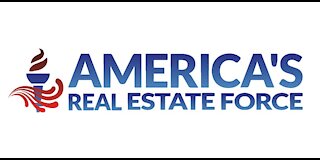4 Powerful Tax Advantages of Multifamily Real Estate
Since we are now officially in tax season, I’m sure many of you are wondering how to protect your wealth from it being taken by the IRS. I have covered some of the tax benefits when it comes to multifamily, but I want to go a little deeper in the benefits and what it means to you as an active owner or a passive investor.
Before I go into the 4 most powerful tax advantages of multifamily investing, please note that I am not a CPA or a tax attorney. All this information is based on my personal experience and advice from my advisors on deals. Really, this is a birdseye view of the most powerful tax benefits that any passive investor should understand and you should talk to your own tax planning advisors and strategists before executing these tactics.
1) Depreciation
When you own or are invested in a multifamily deal, you are technically invested in a business. So everything related to that business, from paperclips to taxes, can be written off. One of the most powerful deductions you can write off is depreciation.
This is how a straight line depreciation schedule works: The IRS ruled that resident-occupied real estate has a lifespan of 27.5 years. The land the property sits on cannot be depreciated as it has an infinite lifespan. Let’s say you want to buy a property for $6MM and the land is worth $400k. Applying the IRS rule, you are able to deduct 1/27.5 of the $5.6MM, or $203,636 from income for each year. This allows you to show a loss on paper as the deduction may eliminate most or all of the income from that property. Even though you show a loss on your tax return, that money is cash in your pocket and that of your investors.
If you have a portfolio of other investments, you are then able to apply these paper losses to other areas of your portfolio. This means that your multifamily investment can lower your tax exposure on other investments you hold. Even as a passive investor on one of our deals, the depreciation in our multifamily deals flows through to our investors in proportion to their ownership percentage.
Keep in mind that I am not saying that it is not an entire elimination of all taxes. But there are other tools you can use to defer taxes indefinitely and even accelerate depreciation
2) Cost Segregation
Cost Seg is a great way of accelerating the depreciation of just about any commercial property - including multifamily. As I mentioned earlier, the IRS tax code says that real estate has a lifespan of 27.5 years. However, there are certain items that make up the building such as the plumbing fixtures to the cabinets to the appliances, that have a shorter lifespan.
When a professional cost segregation study is performed, an engineer will come on site and walk each individual unit. From there, they will separate all the items from the overall value of the building and present you with a schedule for those individual items. Many of those items, the IRS deems them to to have up to 7 years of useful life. The cost segregation study identifies these items.
In the previous example, I indicated that you would save $203,000 in taxes through depreciation. Let’s say that the cost segregation study of that $6MM property shows there is $5MM in building depreciation and $1MM from personal property appreciation. Your taxes look a lot different. We would take the ($5MM x 1/27.5 years) for $181,818 and ($1MM x 1/7 years) for $142,857, totalling $324,000 in annual depreciation expense - a significant savings over the $203,000 that we had calculated before! This will give you a great tax offset in income against other investment income.
The only caveat with taking this approach is that you could get hit with a higher tax bill when you go to sell the property down the road. As I mentioned earlier, there are ways of rolling your gains without getting nailed on taxes.
3) Qualify as a Real Estate Professional
For many people, real estate is a means to supplement their full-time job with some additional income. What many don’t know is that if you spend 750 hours or more annually in your real property business, such as managing rentals or turning units, you qualify as a Real Estate Professional. This means you are able to deduct 100% of your rental depreciation and ‘losses’ against any other income. This designation only helps you if you have ownership in a significant amount of rental property (i.e. more than just 1 unit) and you earn less than $150,000/year in Adjusted Gross Income. If you are an investor in one of our deals, you then have ownership and that may get you qualified.
4) 1031 Like-Kind Exchanges
Earlier, I mentioned depreciation as a way to increase your deductions and reduce your gains. A great way to defer taxes on your gains is by using a “1031 like-kind exchange” to roll your gains and avoid getting nailed in taxes for an indefinite amount of time. As long as that cash stays in the 1031, you can keep multiplying it without any tax implications.
-
 2:30
2:30
Real Estate Photo Editing
3 years agoAdvantages of Photo Editing in Start-up Real Estate Businesses
51 -
 0:15
0:15
flowphotos
3 years agoReal Estate Video
76 -
 0:48
0:48
chuckarelei
3 years agoreal estate ad
90 -
 0:53
0:53
ScottysThoughties
3 years agoReal estate agents
721 -
 1:55
1:55
WFTX
3 years agoReal Estate during the pandemic
27 -
 0:09
0:09
Jorge Roque Real Estate Broker
3 years ago $0.01 earnedAmerica's Real Estate Force
101 -
 5:55
5:55
bulletproofcashflow
3 years agoHow To Protect Yourself At The Top of the Multifamily Real Estate Market
103 -
 5:32
5:32
KTNV
3 years agoRevolutionizing Real Estate
51 -
 0:45
0:45
Erica Parker Now
3 years ago2021 Real Estate Goals
32 -
 0:48
0:48
TriCorner
3 years agoTri Corner Real Estate Institute #001
17